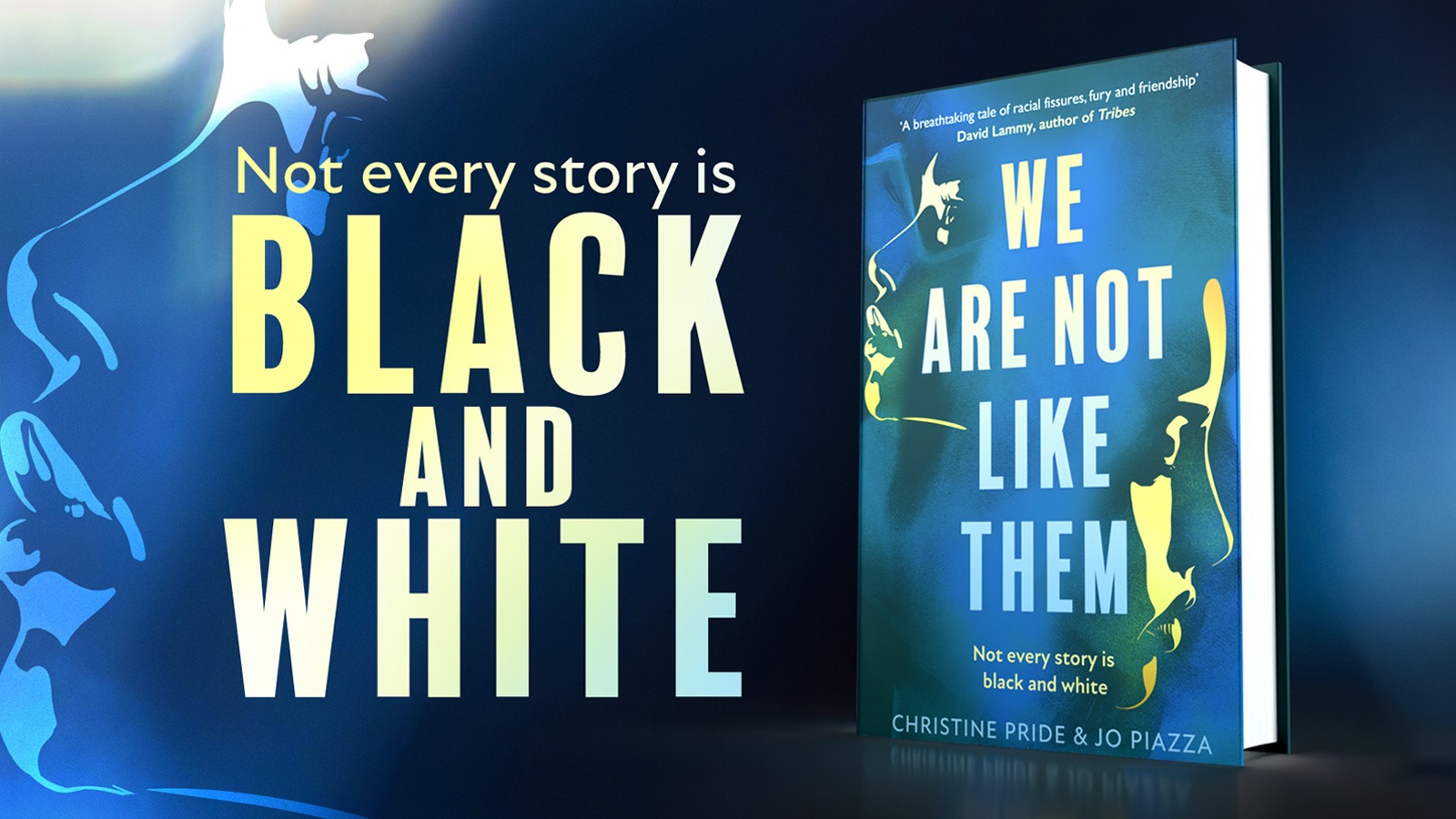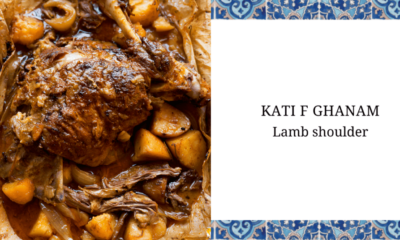Read an extract from the powerful and timely debut We Are Not Like Them and watch a video from authors Christine Pride & Jo Piazza talking about the novel below!
Prologue
When the bullets hit him, first his arm, then his stomach, it doesn’t feel like he’d always imagined it would. Because of course, as a Black boy growing in this neighborhood, he’d imagined it. He’d thought it would feel hot and sharp, like the slice of a knife; instead, his entire body goes cold, like someone has filled his insides with ice.
The blood is a surprise too, not how much—he’d pictured it pooling around him—but how little, a warm, sticky trickle flowing from under his jacket where he fell to the ground.
He hears heavy footsteps and voices coming closer, two of them. One is calling for an ambulance. They’re talking loud and fast, not to him but to each other.
“Check his ID.” “No, don’t touch him.” “Fuck!”
And then: “Where’s the gun? Get the gun!” One of them says this over and over.
There’s no gun. He wants to explain, but no words come out of his mouth.
He was wearing his headphones—Meek Mill blasting in his ears— when he thought he heard shouting, felt footsteps pounding in the alley. He turned and instinctively reached for his phone in his pocket to turn off the music. That was stupid. He knew better. No sudden movements. Don’t be a threat. Do what they say. His mom had drilled this into him since he was old enough to walk. He didn’t even have a chance though; his mind moved so much slower than the bullets.
An image comes to him—his face on the news. He knows exactly which photo his mom will choose: his school picture from last year, eighth grade. She was happy he’d finally smiled in it; he usually tried to keep his mouth closed to hide the gap in his teeth, even though just last week he’d overheard Maya in line behind him in the cafeteria call it “cute.” He pictures Riley Wilson, the pretty one on Channel Five, with her bright red lips, her voice smooth as melted chocolate: “Fourteen-year-old Justin Dwyer was shot tonight by Philadelphia police officers ”
He looks at his phone on the ground next to him, screen shattered into a spiderweb of cracks. For a split second, he’s seized with panic— his mom had made it clear when he lost his last phone that she wouldn’t buy him another one. Then it hits him just as suddenly: it doesn’t matter. In the backpack lying beside his phone there’s a brand-new polo— one he bought with his allowance, ten bucks a week for good grades and doing the food shopping and making dinner the nights his mom works double shifts. He’s scared he’s never going to get to wear that shirt. He vibrates with nervous jitters like when time is running out on a test. There are so many things he still may never get to do now—drive a car, see the ocean, have sex. As he hears the sirens growing louder, he starts to shake uncontrollably.
He tries to stop himself from thinking about his mother. He knows what her cries will sound like, because he heard them when his dad died four years ago. He won’t be able to comfort her as he did then, rubbing her back, telling her, “It’s okay, it’s okay,” even though it wasn’t, even though he was terrified that he now had to be the man of the house.
It’s okay. It’s okay. He whispers the words to himself because there’s no one else to do it. The officers are close, their scuffed boots eye level; their voices float far away, jumbled with the shrill sirens and the chatter from their radios. One of them kneels near him. “Hang on, kid. You’re gonna be all right. Please just hang on.” He wants to tell them his name. If they know his name he’ll be less alone. Worse than the pain or even the fear is that he’s never felt so alone in his life.
A single star is visible in the hazy sky above, like the light in the fish tank in his room. It’s something to focus on, something to hold on to until whatever comes next.
Chapter One
RILEY
You can’t trust white people. My grandmother’s voice is in my head out of nowhere, her Alabama lilt still honey-thick despite almost a lifetime of living in Philadelphia. I swear I can even feel her hot breath in my ear. It’s been happening more and more lately, ever since Gigi passed out two weeks ago on her faded corduroy La-Z-Boy, where she faithfully watched Judge Mathis every afternoon. She may be over at Mercy Hospital on round-the-clock dialysis, with a prognosis the doctors call “grim,” but she’s also in my ear with her no-nonsense advice and favorite sayings on random rotation. Always keep some “runnin’ ” money in your pocketbook. Don’t kiss a man with dainty fingers. Never drink more than two glasses of brown liquor. Sometimes she’s a little more direct, like this morning when I stopped by the hospital and she clucked, Baby girl, that skirt’s a little short, ain’t it?
I glance down at my skirt, which probably is a little short for work. I tug at my hem, then force it all out of my mind and bust through the station’s double doors, as giddy as a kid playing hooky. Back upstairs, everyone is still in the middle of the 6 p.m. broadcast. For the first time in weeks, I was able to arrange it so I don’t have a package running or a live shot so I could leave at a decent hour and finally meet up with Jen. I’m still running twenty minutes late though. I pull out my phone to text her that I’m on my way and see she’s beaten me to the punch.
You’re even pushing CP time. Get over here already!
Funny, Jen . . . real funny. I roll my eyes, amused. Why did I let her in on the concept of “colored people” time?
I wait at the WALK sign at the corner, in the shadow of a giant billboard featuring the KYX Action News anchor team. As I look up at Candace Dyson’s face, the size of a small planet, the gloss of her toothy grin catching the setting sun, the usual thought runs through my head: One day. Candace was the first Black weeknight anchor at KYX. I idolized her growing up and told her as much on my first day of work five months ago. “I loved watching you as a kid. I dressed up like for two straight Halloweens,” I gushed.
Instead of her being flattered, I was met with a chill that still hasn’t thawed despite my repeated attempts to ingratiate myself. Maybe she could sense how badly I wanted her chair. Maybe she sees me as a threat. Maybe I am.
When the light finally turns, I charge across the street, beads of sweat dripping down the back of my neck, my hair getting frizzier and frizzier by the second in the steamy humidity. It’s almost seventy degrees, which is just plain wrong considering it’s a week into December. It feels like I’m back in Birmingham, which makes me shudder despite the heat.
I bound through the entrance and slam into a throng of happy- hour revelers—a sea of Crayola-colored J.Crew sheath dresses and blue button-downs. I only suggested this place because it was close to the station, but I’m barely through the door before the crowd, the faux-farmhouse decor, the waitstaff in plaid suspenders, all combine to radiate an instantly irritating pretension.
Not long ago this street was all liquor stores and check-cashing places, the kind of block a woman knew better than to walk down after dark. It’s like this now all over the city; gentrification creeping into every corner, as relentless as water finding its way through every crack, the grit and grime replaced by sleek lofts and craft breweries. I barely recognize my hometown.
It’s the same feeling when I spot Jen sitting at the bar. It takes me several double takes to recognize my oldest friend. She’s chopped off her long hair so it ends right at her chin. In the three decades I’ve known her, she’s never once had short hair. She looks like a stranger. Without even quite meaning to, I edit the scene to a more familiar sight—Jen’s long dirty-blond hair, streaming down her back, smelling like the lavender Herbal Essences shampoo she’s faithfully used since middle school. She and I haven’t seen each other as much as we promised we would when I moved home, and it’s all my fault, the new job has consumed me, but seeing her now, I’m hit with a rush of love. Jenny.
I stop to watch her for a moment, a habit from when we were little girls. Back then, I thought if I studied her enough, I could train myself to be more like her—breezy, outgoing, fearless. But that never happened—turns out you don’t outgrow yourself.
Jen leans into the man sitting next to her, whispers something to him, playfully slaps his thigh, and then laughs so loudly other people look over. He’s mesmerized, basking in the attention like a fat lizard on a sun-soaked rock. This is what Jen does, draws you in and makes you believe there’s something uniquely interesting about you, even when you’re completely ordinary and boring, prying personal information from you that you aren’t even sure why you’re sharing. She probably already knows whether he gets along with his mother, the last time he cried, and what he’d rather be doing with his life besides going to happy hour at pretentious gastropubs. It’s her gift, her aggressive friendliness, and it’s why it was always Jen who charged into parties, or the first day of school, or the first track meet, with me trailing behind, counting on her to be our emissary, to make friends for the both of us. It was easy for Jen, who, unlike me, fits in everywhere, with everyone.
And though she’s not classically pretty—she once joked that she was “trailer-trash hot . . . a poor man’s Gwyneth Paltrow”—men have always been drawn to her. Like this guy who’s now leaning a little too close despite Jen’s wedding ring I can see even from here. Not to mention his.
I take a few steps in her direction and stop short when Jen turns ever so slightly. There, poking out from her black tunic, her round stomach. Like the hair, this startles me, though it shouldn’t. The last time I saw her, for brunch right before Halloween, she wasn’t really showing. Seeing her belly now, almost as big as the soccer balls we used to put under our shirts when we were little to pretend we were pregnant, makes it all too real. This pregnancy may not have even happened without my help, but I’m still getting used to the idea that Jen is having a baby. As if sensing me, Jen turns around and shouts, “Leroya Wilson, get your butt over here!”
I’m startled hearing my given name, which I stopped using years ago and for a second I wonder why she’s yelling it across a crowded bar. Then I see the look on her face and can tell she’s offering it as a term of endearment, a signal of our connection. I knew you when. It’s funny that I can’t even remember exactly how I came up with my new name, but I do remember how emphatic I was about changing it. It was after a field trip to the news station in eighth grade. Standing in the control room, watching the energy and action of live news, seeing Candace sitting at the anchor desk with her stiff helmet of curls and her Fashion Fair coral lipstick, gave birth to a dream.
I leaned over and whispered to Jen right then and there.“I’m gonna be her, Jenny. I’m going to be the next Candace Dyson.”
For weeks after, I spent every day after school staring in the bathroom mirror, wearing the plaid blazer Momma had bought me for mock trial and a mouthful of metal braces, practicing my sign-off. “This is Leroya Wilson, for Action Five News.” But it never felt quite right. It was rare enough to see someone on TV who looked like me, and when they did they definitely didn’t have a name like Leroya. And so I became Riley.
By the time I’ve elbowed my way to the bar, Jenny is standing, waiting to greet me.
“Whoa, mama!”
“I’m huge, right?” Jen arches her back and cups a hand under the bump to exaggerate its size.
“Well, I meant your hair!”
“Oh yeah! Surprise! I did it last week. I wanted something shorter and easier, but not a mom cut.” Her hand floats up from her stomach to run through what’s left of her hair. “It doesn’t look like a mom cut, right?”
“No, not at all,” I lie.“It’s very chic. Come here.” I pull Jen into a hug and flinch a little at the odd sensation of her hard belly pushing against mine. When I press my face into her hair, the familiar smell of lavender is so strong I can taste it. The nostalgia is like a warm blanket. Thank God I didn’t cancel. It had crossed my mind more than once today, but standing here in Jen’s embrace and a haze of memories, the stress about Gigi, work, my never-ending to-do list, the exhaustion—all of it recedes and there is only Jenny, exactly what I needed. I’m already more relaxed knowing that for the next few hours I don’t have to try so hard or impress anyone. Sometimes you just need to be around someone who loved you before you were a fully formed person. It’s like finding your favorite sweatshirt in the back of the closet, the one you forgot why you stopped wearing and once you find it again you sleep in it every night.
Discover We Are Not Like Them in hardback, eBook and audio here.





